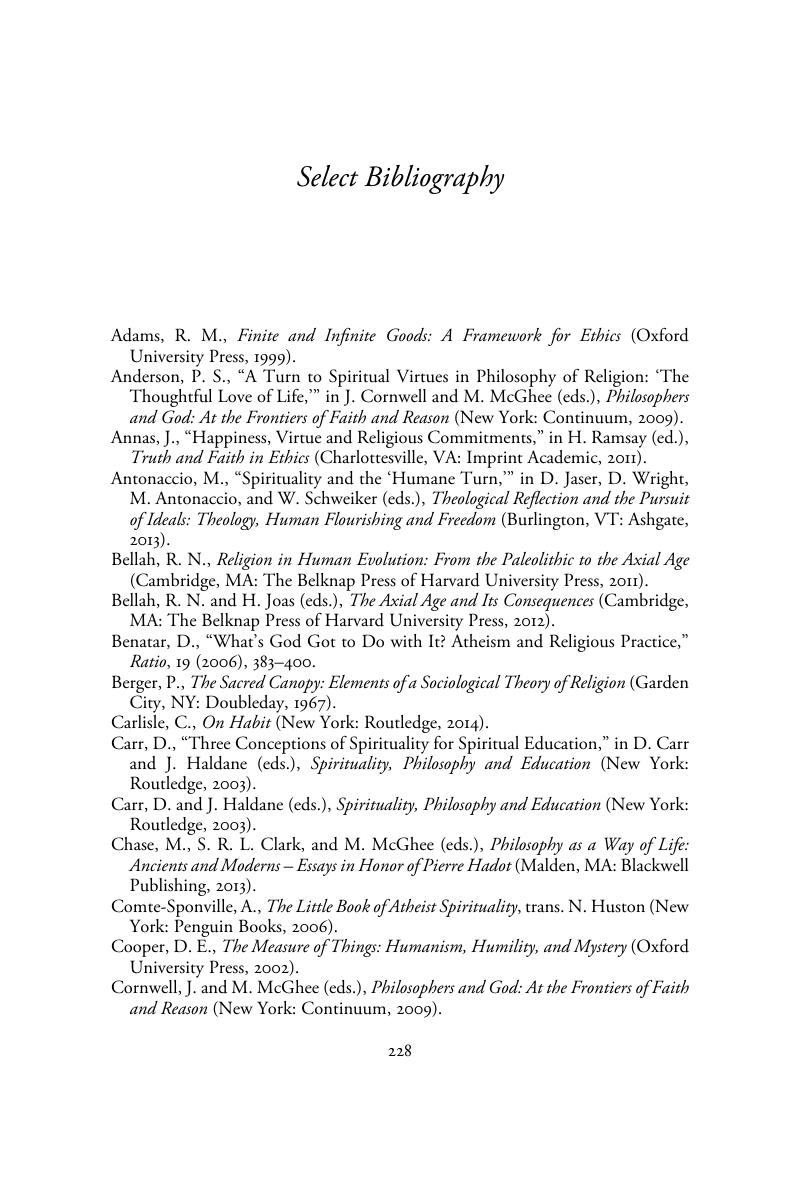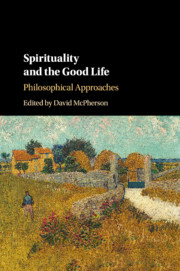Book contents
- Spirituality and the Good Life
- Spirituality and the Good Life
- Copyright page
- Dedication
- Contents
- Contributors
- Acknowledgments
- Introduction
- Chapter 1 Philosophy, Religion, and Spirituality
- Chapter 2 The Problem of Impiety
- Chapter 3 The Virtue of Piety
- Chapter 4 Homo Religiosus
- Chapter 5 Desire and the Spiritual Life
- Chapter 6 Between Heaven and Earth
- Chapter 7 The Jewish Sabbath as a Spiritual Practice
- Chapter 8 The Power of the Spoken Word
- Chapter 9 Aristotelian Friendship and Ignatian Companionship
- Chapter 10 Starting with Compassion
- Chapter 11 Identifying with the Confucian Heaven
- Chapter 12 Agnostic Spirituality
- Select Bibliography
- Index
- References
Select Bibliography
Published online by Cambridge University Press: 12 October 2017
- Spirituality and the Good Life
- Spirituality and the Good Life
- Copyright page
- Dedication
- Contents
- Contributors
- Acknowledgments
- Introduction
- Chapter 1 Philosophy, Religion, and Spirituality
- Chapter 2 The Problem of Impiety
- Chapter 3 The Virtue of Piety
- Chapter 4 Homo Religiosus
- Chapter 5 Desire and the Spiritual Life
- Chapter 6 Between Heaven and Earth
- Chapter 7 The Jewish Sabbath as a Spiritual Practice
- Chapter 8 The Power of the Spoken Word
- Chapter 9 Aristotelian Friendship and Ignatian Companionship
- Chapter 10 Starting with Compassion
- Chapter 11 Identifying with the Confucian Heaven
- Chapter 12 Agnostic Spirituality
- Select Bibliography
- Index
- References
Summary

- Type
- Chapter
- Information
- Spirituality and the Good LifePhilosophical Approaches, pp. 215 - 227Publisher: Cambridge University PressPrint publication year: 2017



